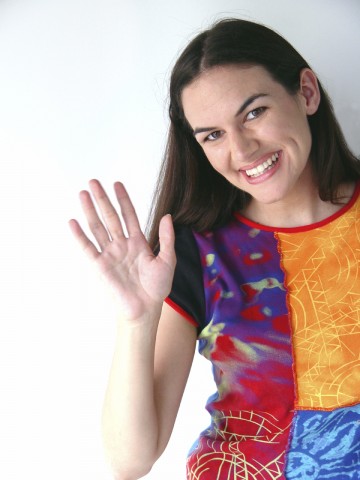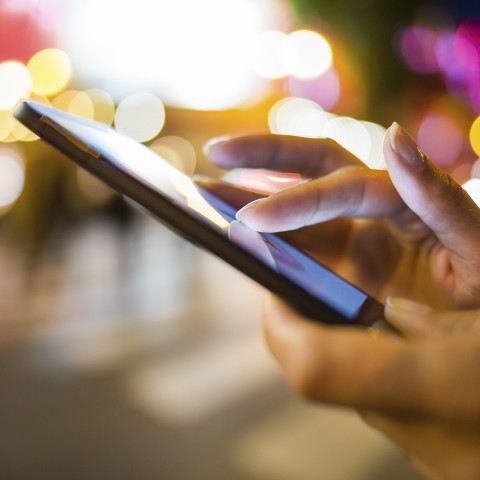
What word passes between native speakers a dozen times a day without a second thought, but leaves a learner tongue-tied, terrified of making a faux pas?
It’s “hello”—but it’s also all the cultural knowledge that comes with it. Saying hello in Modern Standard Arabic is no picnic if you don’t know the cultural context! Keep reading if you’ve ever wondered “How do Arabs say hello?”
Every Arabic phrasebook or guidebook has an entry for “hello,” but I’ll bet that they didn’t tell you how to use it. No matter how good your grammar is, slapping Arabic words into English cultural contexts will leave anybody confused.
Fortunately, you’ve got this guide to keep you on the right path. Arabs are legendary for their hospitality, and putting a little bit of work into the language will turn whatever goodwill they have for you up to eleven.
Plus, it’s just plain respectful to learn about other people’s cultures.
So with these advantages firmly in mind, let’s take a look right now at the beautiful and varied ways of using Standard Arabic to say hello.
1. Peace Be Upon You
- السلام عليكم (as-salām ʿalaykum) — “Peace be upon you!”
This greeting gets its own special section right at the top. It’s used literally all over the world by Muslims of every country as a respectful greeting. If you’re not Muslim, don’t worry about offending anybody by using it—on the contrary, they’ll take it very well. This may just be the best way to say hello in Arabic.
What’s going on grammatically here? You may be spooked by the idea that “hello” is six syllables long. It turns out it’s pretty simple!
السلام (salām) means “peace” and عليكم is “upon you”—a combination of the preposition على (ʿala) meaning “on” and ـكم (kum), the suffix meaning “you (plural).”
If someone says this to you (or an audience you’re in) there is exactly one possible response:
- وعليكم السلام (wa ʿalaykum as-salām) — “And peace be upon you.”
Same idea, same meaning, slightly different structure to shake things up.
This time, we’re going to add a cute little و (wa) to the front here, adding the meaning “and” to the base structure.
2. Hi! Hey! Hello!
As you’re no doubt aware, Modern Standard Arabic isn’t really used casually among people in their day-to-day life—so there aren’t a zillion slangy ways of greeting as there are in other languages.
But that doesn’t mean you’re limited to excessively formal ways to say hello. Take a look at these phrases in the Arabic language of how to say hello:
- مرحبا (marḥaban) — “Hello”
- أهلا – (ʿahlan) — “Hi”
- أهلا وسهلا (ʿahlan wa-sahlan) — “Welcome / How do you do?”
These three are less official-sounding than “Peace be upon you.”
Fun fact: ahlan wa-sahlan literally means “Family and easy circumstances.” It’s a shortened version of an old Classical Arabic welcoming expression and has survived until today as a set phrase—much like “how do you do” doesn’t really sound like a greeting when you deconstruct it.
3. As the Day Goes On
Arabic has time-oriented greetings just like many other languages. When learning how to say hello in Arabic, phrases like the ones below will definitely come in handy.
If it’s before noon, you’ll want to greet people with:
- صباح الخير (ṣabāḥ ul-ḫayr) — Good morning!
To which you will very often hear the response:
- صباح النور (ṣabāḥ an-nūr) — Good morning!
The key words here are:
- صباح (sabaah) — morning
- خير (ḫayr) — good
- نور (nūr) — light
So in a way you’re saying “A good morning!” and hearing “A light morning!” And I think that’s beautiful.
MSA, and thus Arabic culture, doesn’t really have a word for “good afternoon.” In fact in some phrasebooks you’ll see an entry for “good afternoon,” but in fact it’s the same as “good evening.”
Any time after noon, you’ll use this phrase:
- مساء الخير (masāʾ ul-ḫayr) — Good evening!
The structure is the same as the phrase for “good morning,” just as the pattern goes in English.
In fact, the structure for the response is, too:
- مساء النور (masāʾ un-nūr) — Good morning!
Perhaps you’ve already guessed the new word here:
- مساء (masā) — evening
If these new words are making you feel in over your head, don’t worry. You can actually skip the un-nūr bit and just reply masāʾ ul-ḫayr or ṣabāḥ ul-ḫayr directly.
These two phrases are a perfect level of formality for the workplace. If you work with Arabic speakers, greet them in the morning or afternoon in Arabic and watch the smiles appear all around.
4. And How are You?
Now that you’ve learned some common ways to say hello in Arabic, we can focus on how to develop a short conversation.
- كيف الحال؟ (kayfal-ḥāl?) — How is everything?
In English we’d say “How are things?” but you’ll note in a moment that the word al-haal is singular, not plural in Arabic.
In fact, you can make it slightly more personal and add the -uk suffix (when speaking to a man) or the -ik suffix (when speaking to a woman): kayfa ḥāluki?
Responses here can vary a lot.
One option is very familiar for English speakers:
- بخير، شكرا (biḫayr, šukran) — Fine, thanks
These words translate literally, so I won’t put them down below in the vocab section. Culturally, it’s not as strange to actually reply with “how are you doing,” when you speak Arabic.
Let’s say you actually don’t have a lot of time to chat, or you’ve got a lot of things on your mind. You could say:
- مشغول (mašġūl) — Busy
Remember that this is the masculine form. A woman would say مشغولة (mašġūla) instead, with the same meaning.
Let’s have a look again at that question. The more we break down these everyday greetings, the clearer it becomes that Arabic really isn’t too difficult at all.
- كيف (kayfa) — How
- حال (ḥāl) — Situation; circumstance
The polite response to “how are you” in many cultures is something like “And yourself?”
So we can add this in Arabic too. To a man, you’d say:
- و أنت؟ (wa anta?) — And you? [masculine]
The question as posed to a woman is written identically, but pronounced:
- و أنت؟ (wa anti?) — And you? [feminine]
And it can’t hurt to keep saying شكرا (šukran), meaning “thank you,” after you offer your answer.
Also keep in mind that you’ll very likely hear this phrase in the context of saying good things:
- الحمد لله (al-ḥamdu lillah) — Praise be to God!
Culturally, this is used much more commonly than “thank God” is in the West. Any time you mention something good that happened to you or someone you know, it’s perfectly fine to say this phrase.
5. Phone’s for You
It’s an interesting fact of our modern interconnected world that the English word “hello” is so widely known and understood.
Even though it’s a little too formal for people in everyday life to actually say “hello” to one another, it’s the standard and automatic greeting we use whenever we pick up the phone.
And in Standard Arabic, it turns out it’s the same!
- آلو (‘alo) — Hello?
In other Arabic dialects, locals may have their own way of answering the phone. Nevertheless, ‘aaloo is both so common and so simple for English speakers, that you’re not likely to forget it.
6. Small Talk is No Big Deal
Suppose you’re in a situation where there’s nothing to do but fill an awkward silence.
One of the best small talk topics is to ask about someone’s family.
But don’t say anything that might come off as too forward. That means no direct questions about a man’s wife, especially asking her name or age.
He might get the wrong impression and resent you for asking.
So it’s better to literally inquire politely about his “family” instead.
- كيف حال عائلتك ؟ (kayfa ḥalu ʿāʾilatuk?) — How is your family?
Now, he’s almost definitely going to tell you about his wife, but that’s no problem. Just as long as you weren’t the first to bring her up.
Another great and safe topic is the weather.
- الجو جميل اليوم (al-ǧawwu ǧamīl al-yawm) — The weather’s nice today.
- هل تظن أنها ستمطر؟ (hal taẓunnu ʾannahā satumṭir?) — Do you think it will rain?
Don’t complain too much, but once you’re on a bit of an even social footing you can shake your head in exasperation and say:
- الجو حار (al-ǧawwu ḥār) — It’s hot!
Have a look—you can still see the word جو (ǧaw), meaning “weather,” in that last sentence. In English, we can say “It’s hot,” but in Arabic we have to say “the weather is hot.”
7. You’ve Mastered the Language — Now What Else?
It’s still pretty rare for foreigners to know or even attempt any Arabic when visiting an Arab country.
More than likely, you’ll receive smiles and praise for saying hello or anything else in Arabic.
But what comes with that hello? Etiquette, culture, and tradition.
Don’t be frightened. You’ve got a lot of leeway as a visitor or foreigner, so don’t feel under a ton of pressure to perform exactly as a local. (Though it’s always good to make an effort to sound polite.)
For example, in many Arab countries people do an “air-kiss” on the cheeks to say hello.
The procedure and number of kisses varies from country to country, so there’s no one-size-fits-all guide out there.
In fact, it’s a source of lighthearted frustration for Arabs themselves at times!
Three basic tips, though:
- Look before you kiss: Going in blind is a recipe for disaster
- Go for the right side first: Most of the time, the other person will too
- Don’t actually touch the cheek: It’s just an air kiss, not a peck
These ought to get you far enough to pick up the rest when it’s time.
In general, when men meet women in a formal setting for the first time, they should avoid initiating an air-kiss or any other gesture of friendly intimacy like a handshake or hug. Hang back and watch what others do, or simply give a verbal greeting first.
It’s okay to ask your hosts discreetly (and politely!) “Hey, do I have to kiss these people?” Remember, you’re not expected to know everything about how to behave.
It turns out, though, that often the answer is yes. It’s not uncommon for groups of upwards of twenty to spend several minutes just on the kissing!
8. Come Bearing Gifts
Gift-giving is a much more important part of Arabic culture than it is in the West.
It’s actually linked quite closely with greetings, and so the same general principles apply. Don’t be too forward and don’t offer gifts that are too personal.
For instance, it’s probably best to avoid fragrances or clothing unless you know the person well.
Food is a fantastic choice. Everyone appreciates a gift of dates or nuts. They can be stored or eaten right away—in fact, you may get to share as well!
Always give the gift with your right hand or both hands at once. The left hand is usually considered unclean in traditional Arab cultures.
9. Parting is Such Sweet Sorrow
No guide on saying hello would be complete without tips on saying goodbye.
Culturally, saying goodbye in Arabic takes a lot longer than its equivalent in the West. It’s considered quite rude in the Arab world to leave abruptly without paying respect to those whom you were visiting.
Just like saying “Hello” on the phone, the English word “Bye” has crept into everyday Arabic too. Here’s how it’s written out:
- باي (bāi) — Bye
The most polite and formal phrase is:
- مَع السَلامة (maʿ al-salāmah) — With (the) peace
If this is said to you, you can repeat the same thing. “With peace!” “With peace!”
Another excellent option is to use this slightly less formal phrase:
- إلى اللِقاء (ʾilā al-liqāʾ) — Until we meet again!
This literally means, “To the encounter,” which happens to translate perfectly to the French au revoir.
Conclusion
Who would have thought that the language used in a quick chat would have so many intricate facets?
If it seems like this is part of some “mysterious Arab culture” then think again. I could write a guide twice as long in Arabic about the particulars of saying hello in American or British culture.
No culture or language is inherently more complex than another. It’s all based on what you’re used to.
So now that you have a solid grounding in what’s involved in Arabic greetings, why not explore even more about the language and culture on ArabicPod101.com? We have all the resources you need to become a pro in the language, from vocabulary lists on a range of topics, to our MyTeacher app which offers one-on-one guidance as you learn Arabic.
We wish you the best on your Arabic-learning journey!
Author: Yassir Sahnoun is a HubSpot certified content strategist, copywriter and polyglot who works with language learning companies. He helps companies attract sales using content strategy, copywriting, blogging, email marketing & more.













